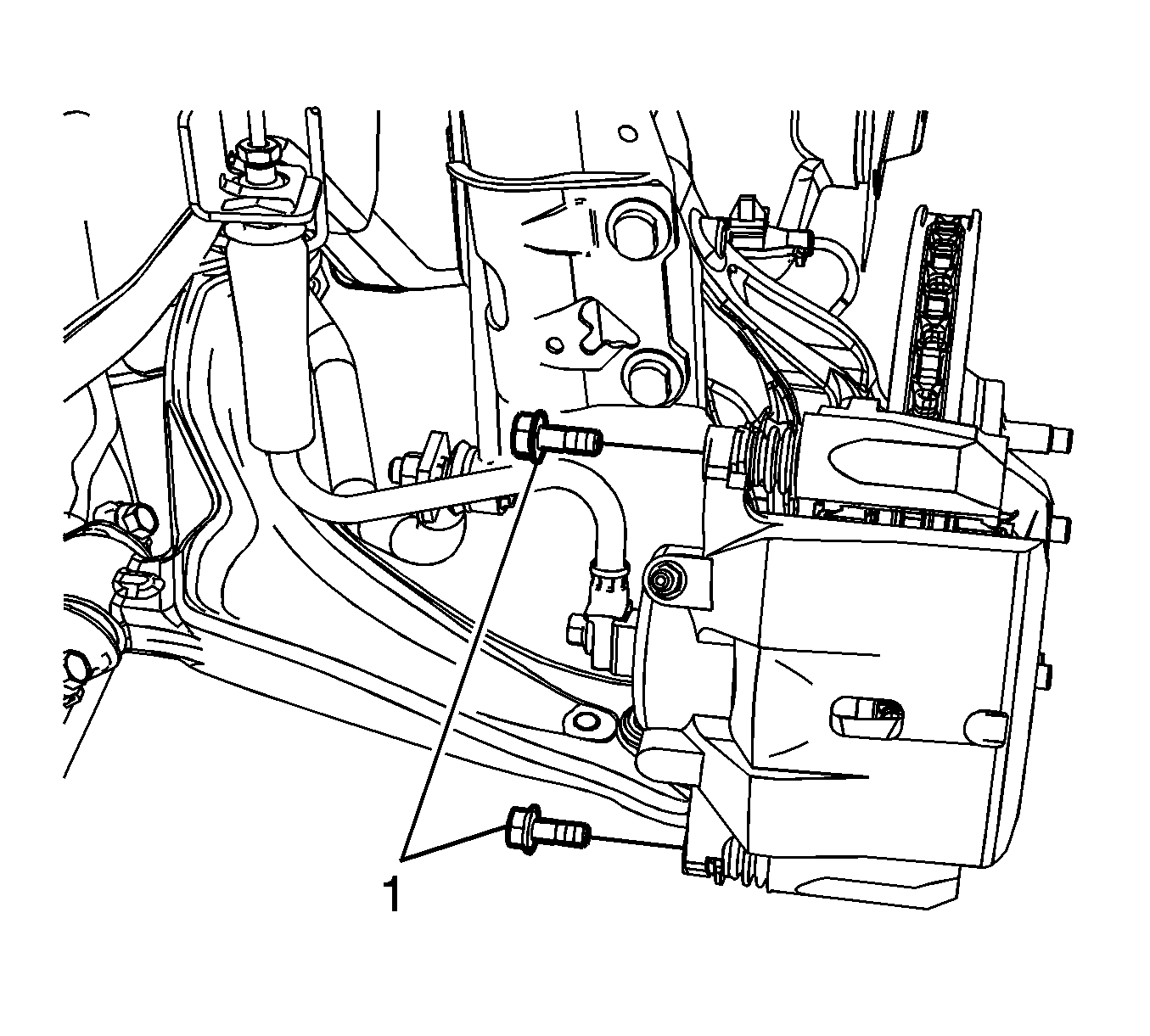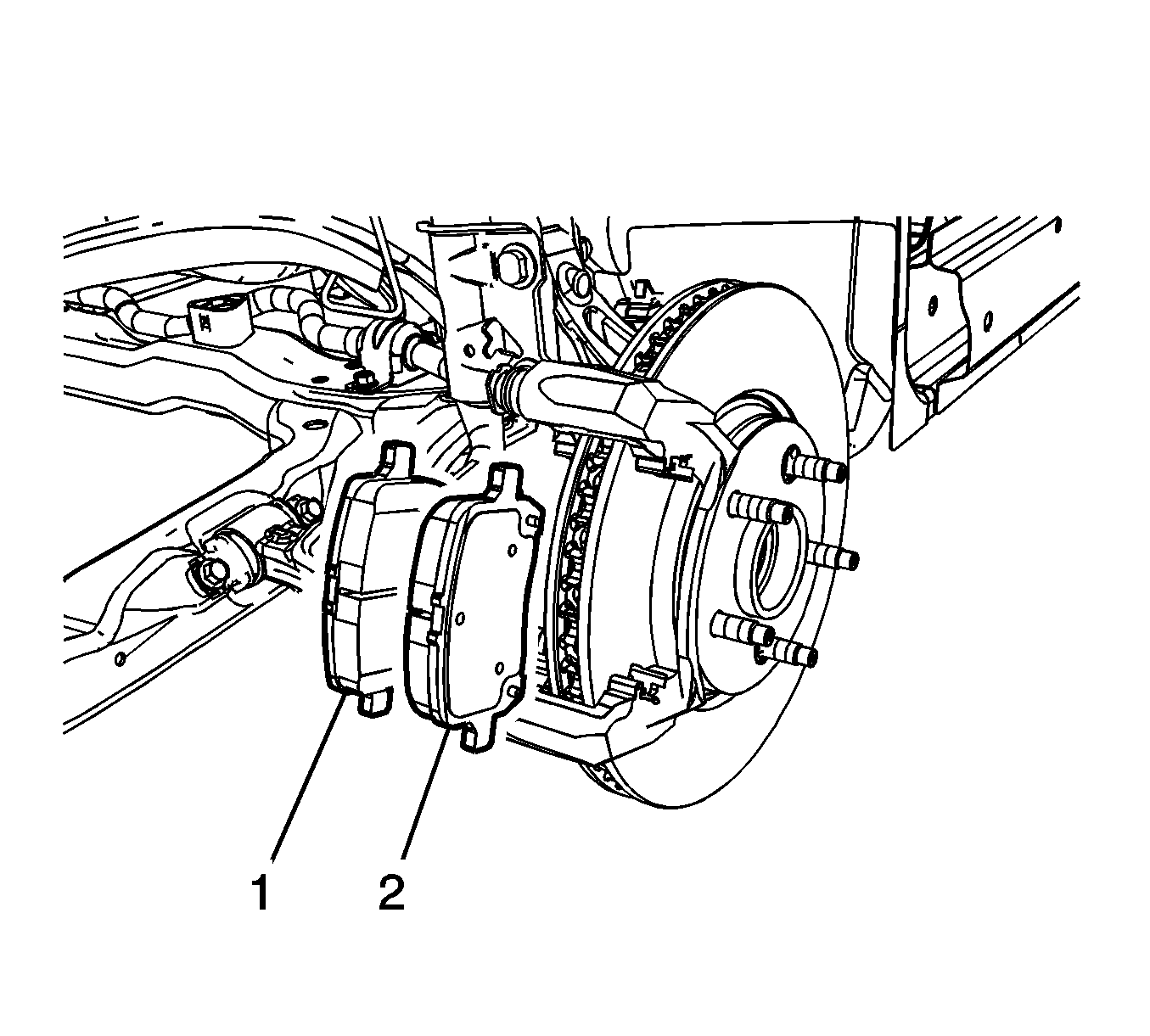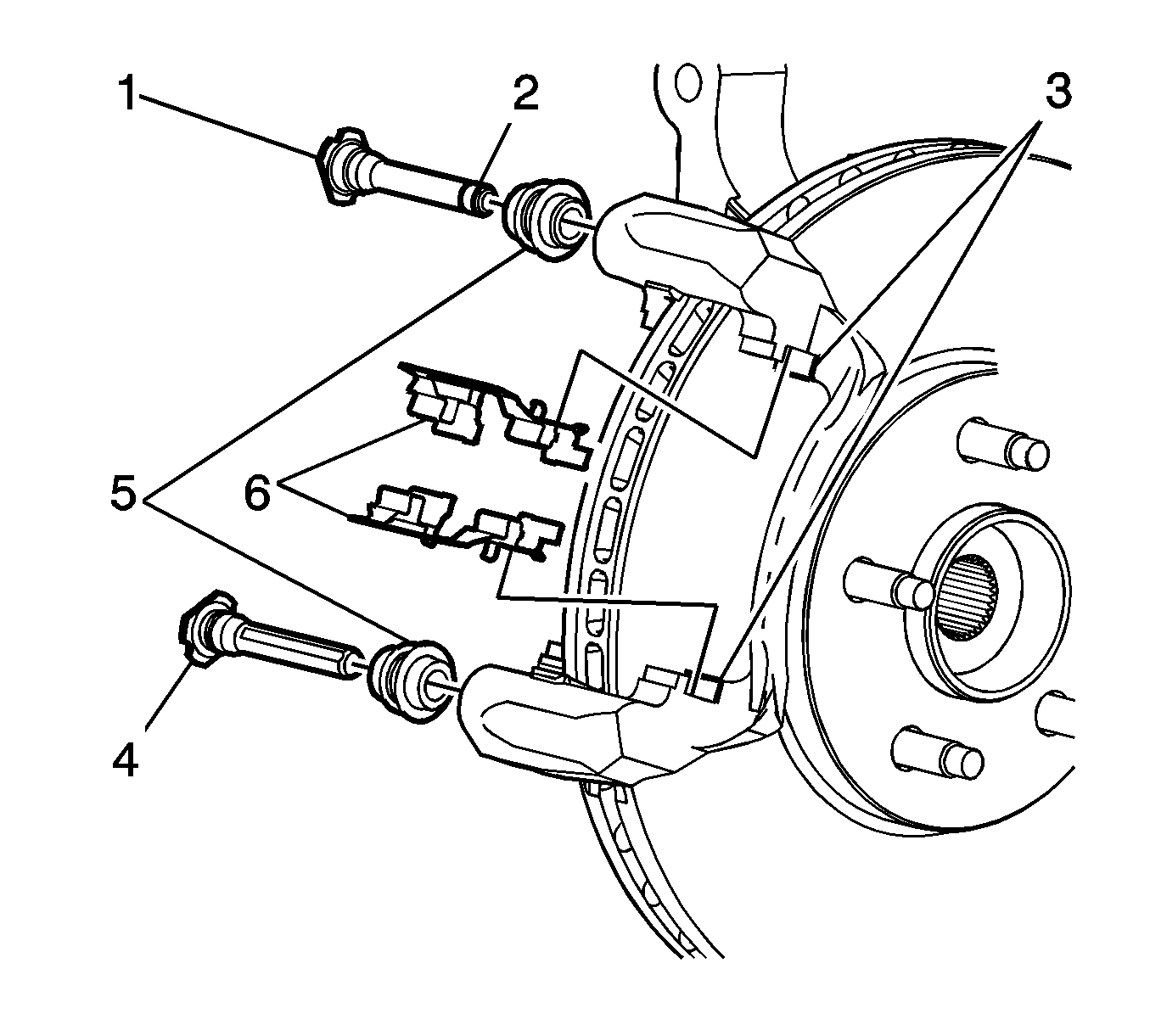Warning: Refer to Brake Dust Warning in the Preface section.
Removal Procedure
- Raise and support the vehicle. Refer to Lifting and Jacking the Vehicle.
- Remove the tire and wheel assembly. Refer to Tire and Wheel Removal and Installation.
- Install and firmly hand tighten 2 wheel nuts to opposite wheel studs in order to retain the rotor to the hub.
- Remove the brake caliper guide pin bolts (1).
- Remove the brake caliper and support with heavy mechanics wire or equivalent.
- Remove the inboard brake pad (1).
- Remove the outboard brake pad (2).
- Remove the disc brake pad retainers (6) from the brake caliper bracket.
- Thoroughly clean the brake pad hardware mating surfaces of the caliper bracket (3) of any debris and corrosion.
- Inspect the disc brake pad retainers (6) for the following:
- If any of the conditions listed are found, the disc brake pad retainers require replacement.
- Remove the brake caliper guide pins (1, 4) from the brake caliper bracket.
- Remove the caliper guide pin boots (5) from the caliper bracket.
- Inspect the caliper guide pin bores in the caliper bracket. Carefully remove any debris or corrosion from the bores.
- Inspect the guide pins (1, 4) and the bushing (2) on the upper guide pin. If either of the guide pin assemblies is damaged or corroded, or if the bushing is damaged, the guide pins require replacement.

Caution: Support the brake caliper with heavy mechanic wire, or equivalent, whenever it is separated from its mount and the hydraulic flexible brake hose is still connected. Failure to support the caliper in this manner will cause the flexible brake hose to bear the weight of the caliper, which may cause damage to the brake hose and in turn may cause a brake fluid leak.

Note the location of the brake pad wear sensor.

| • | Bent mounting tabs |
| • | Excessive corrosion |
| • | Looseness at the brake caliper mounting bracket |
| • | Looseness at the disc brake pads |
Replace the caliper guide pin boots if damaged.
Installation Procedure
- Apply a thin, light coating of high temperature silicone brake lubricant to the inside of the brake caliper guide pin boots (5).
- Fully install the guide pin boots (5) to the brake caliper mounting bracket.
- Apply a light coating of high temperature silicone brake lubricant to the brake caliper guide pins (1, 4), including the bushing (2) on the upper guide pin. Apply very little lubricant to the end of the upper guide pin, ahead of the bushing (2).
- Install the brake caliper guide pins (1, 4) to the caliper mounting bracket. Ensure that the rim of the guide pin boots is fully seated in the groove on the guide pins.
- Apply a very thin coating of high temperature silicone brake lubricant to the pad hardware mating surfaces of the caliper bracket (3) only.
- If reusing the brake pad retainers, clean the brake pad mating surfaces of the brake pad retainers (6).
- Install the brake pad retainers (6) to the brake caliper bracket.
- Install the inboard brake pad (1).
- Install the outboard brake pad (2).
- Remove the support and install the brake caliper to the caliper bracket.
- Install the brake caliper guide pin bolts (1) and tighten to 35 N·m (26 lb ft).
- Remove the wheel nuts retaining the brake rotor to the hub.
- Install the tire and wheel assembly. Refer to Tire and Wheel Removal and Installation.
- Lower the vehicle.

Note: Ensure there is not a build up of lubricant at the end of the upper guide pin, ahead of the bushing (2).

Note: The wear sensor equipped disc brake pad must be mounted inboard of the rotor with the leading edge of the sensor facing the brake rotor during forward wheel rotation, or at the top of the pad when installed in vehicle position.
Note the location of the brake pad wear sensor.
Caution: Refer to Fastener Caution in the Preface section.

